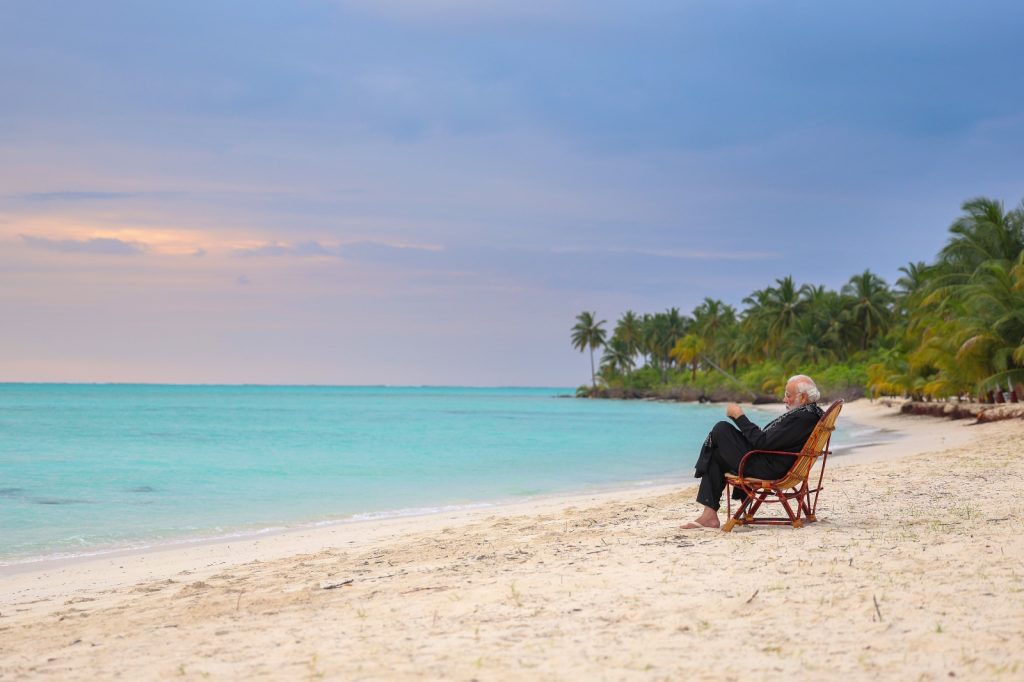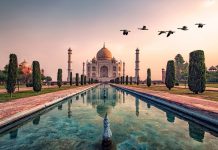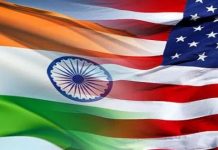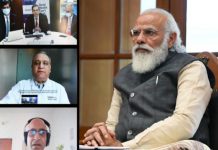The latest diplomatic row between India and Maldives demonstrates that Indians will no longer take things lying down. They are determined to take head on anything that is disparaging. SPOTLIGHT BY KUMKUM CHADHA

When Prime Minister Narendra Modi speaks, the world sits up and listens. It is also more than willing to act and do his bidding.
Recent developments have proved this beyond doubt. What could have passed as a storm in a tea cup has assumed proportions of a diplomatic row between India and Maldives. Add to this, the fact that Indians were enraged at the derogatory language used by a minister of a foreign country for India’s Prime Minister.
Call it nationalism or adulation for Prime Minister Modi, the fact remains that Indians will no longer take things lying down. They are determined to rise to the occasion and take head on anything that is disparaging.
This has been amply demonstrated by developments that have unfolded as the world rang in 2024.
When Prime Minister Modi sat in seemingly a pensive mood watching the pristine waters of Lakshadweep, little did he know that exhorting Indians to explore this 32 sq kilometres archipelago would result in kind of an explosive situation. Neither had he imagined that his asking Indians to be “local,” as it were, would become a full blown controversy.
So what is the story so far? It started with a simple observation that took several twists and turns involving a war of words between Maldives and India resulting in Maldives being struck off the bucket list of affluent Indians and the focus shifting to Lakshadweep.
The image that stuck in the minds of most Indians was Prime Minister Modi lounging in a chair on a white sand beach. That critics had smirked at his attempts at snorkelling with a life jacket is another matter. This despite the fact that snorkelling with a life jacket is completely in order for those who cannot swim.
That notwithstanding, Lakshadweep was in focus with informal pictures of Prime Minister Modi going viral.
There were a series of posts on X this weekend from Prime Minister Modi, promoting tourism in Lakshadweep islands wherein he spoke of “being in awe of the stunning beauty” of the islands, adding that for those with an adventurer’s spirit, Lakshadweep is a must-have on their list.
Interestingly, neither the Prime Minister nor his office mentioned Maldives nor compared it to the marvels of Lakshadweep.
Geographically, Lakshadweep is barely 100 miles north of the Maldives. Many call it “mini Maldives”. In Minicoy, for instance, people speak Dhivehi, which is the national and official language of the Maldives Republic. For record, Minicoy is the second largest island in Lakshadweep.
Historically, it was part of the erstwhile empire of Tipu Sultan. During the British Empire, it was part of the Madras Presidency. In 1956, it became a Union Territory: the smallest in Independent India.
Fast forward to 2024 and Prime Minister Modi flagging Lakshadweep as a tourist destination.
The clarion call, as it were, was to pitch the dekho apna desh campaign to woo Indians to explore India rather than take overseas vacations.
The PM of course made no mention of this campaign that Union Finance Minister Nirmala Sitharaman had included in her 2023 Budget nor did he speak about Maldives.
So how did it all start? And why? There are no single point answers to the why but the how is there for anyone to see.
Absolutely unprovoked, a deputy minister in Maldives accused PM Modi of being “a clown” and a “puppet of Israel”.
It was none other than Mariyam Shiuna, who wrote: “What a clown. The puppet of Israel, Mr. Narendra diver with life jacket”. Shiuna also compared India to cow dung.
Though the post was later deleted, the damage had been done and comparisons started between Lakshadweep and Maldives.
A new low was reached when an image of an island resort in the Maldives was shared: “Sun set in Maldives. You won’t see this in Lakshadweep. #Visit Maldives. CC: @narendramodi” went viral.
It didn’t stop here. Several Maldivian social media users joined the bandwagon and posted offensive remarks against India and Indians, even as they started drawing comparisons between the Maldives and the Lakshadweep islands. Others saw it as an attempt to “compete” with their country as a choice for a tropical vacation for travellers.
“The move is great. However, the idea of competing with us is delusional. How can they provide the service we offer? How can they be so clean? The permanent smell in the rooms will be the biggest downfall,” posted a member of the senate.
To make matters worse, this followed racist remarks against Indians and Indian tourists who travel to the Maldives.
Mockery of the Prime Minister, racist remarks and denigrating India had its effect.
Indian travellers vowed not to travel to the Maldives for their holidays and called for a boycott of Maldives as a holiday destination.
From the Indian point of view, what came as a pleasant surprise was the camaraderie shown by Indians. Celebrities voiced support for the Prime Minister’s call for promoting local tourism and flagged Lakshadweep’s potential. While many Indians cancelled their proposed holidays to Maldives, the travel trade led by Ease My Trip said “NO to Maldives”, promising “crazy special offers” to promote Lakshadweep.
Taking the cue from PM Modi, Co- Founder Prashant Pitti asked travellers to “discover the enchanting beauty of Ayodhya and the pristine allure of Lakshadweep”. Irked at the “jibes” taken at Prime Minister, India and Indians, Pitti said that his company has stopped taking all bookings to Maldives: “As a nationalist, this is the least we can do”.
The damage was more than Maldives could perhaps digest and hence it not only suspended its errant Ministers but distanced itself from any adverse comments made by either the members of the government or its people.
If statistics are anything to go by, in 2023, Indians formed the largest chunk of tourists to the Maldives accounting for over 200,000 travellers, followed by tourists from Russia and China. The Maldives is heavily dependent on tourism and the industry reportedly accounts for over 28 percent of its GDP. Indians are Maldives’ biggest source of high-spending visitors.
Therefore Indians backing off and dropping Maldives from their to do list is something Maldives can ill afford.
Politically anti-India sentiments are nothing new in the bi-lateral relationship between India and Maldives. In 2020, the ‘India Out’ campaign started as on-ground protests in the Maldives. By mid 2021, it had developed into an active and visible political campaign.
Politics and geography apart, the fact that Indians stood up in support of India and its Prime Minister speaks volumes about us as a people. It also demonstrates that Prime Minister Modi has the support of his people and if slighted they would stand up for him. Also his clarion call — be it for Lakshadweep or any other — has a sanctity which few want to trifle with. Remember the “thali bajao” campaign when during Covid 19, the PM had asked people to clap, beat steel plates and ring bells during the ”Janata curfew” on a Sunday. Willy nilly, hundreds and thousands had come out, some even taking to the streets, to demonstrate that Prime Minister Modi’s wish is their command.
Naysayers apart, Mr Modi does command that sentiment that when he asks, the country is keen to do his bidding. His one call motivates millions, the Modiji ne kaha spiel being at its peak. Add to that the jitters the recent controversy has sent down the spine of lawmakers in Maldives is proof enough.
Despite the present dispensation in Maldives fervently wooing China at the cost of India, it is bending over backwards to distance itself from the unsavoury controversy and the uncharitable remarks against the Indian Prime Minister. This is proof enough that neither India, nor Indians nor the Indian Prime Minister can be taken lightly substantiating the oft repeated fact that when Modi speaks the world sits up and listens.












